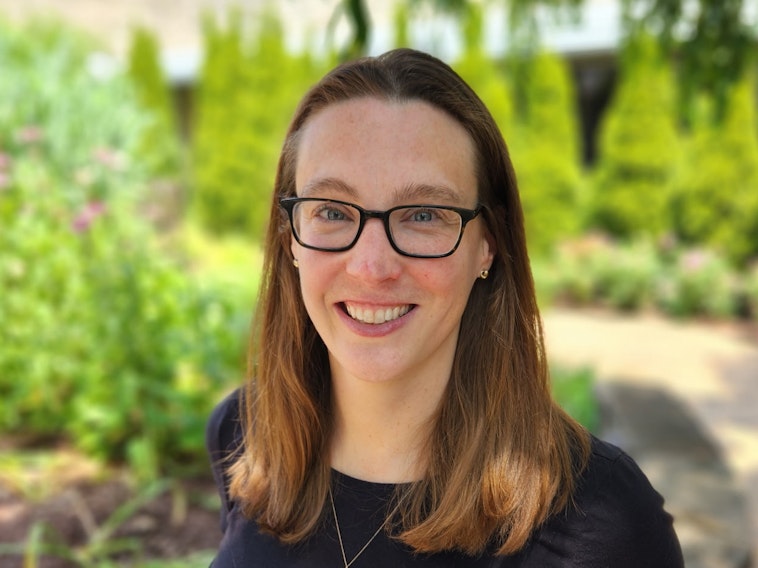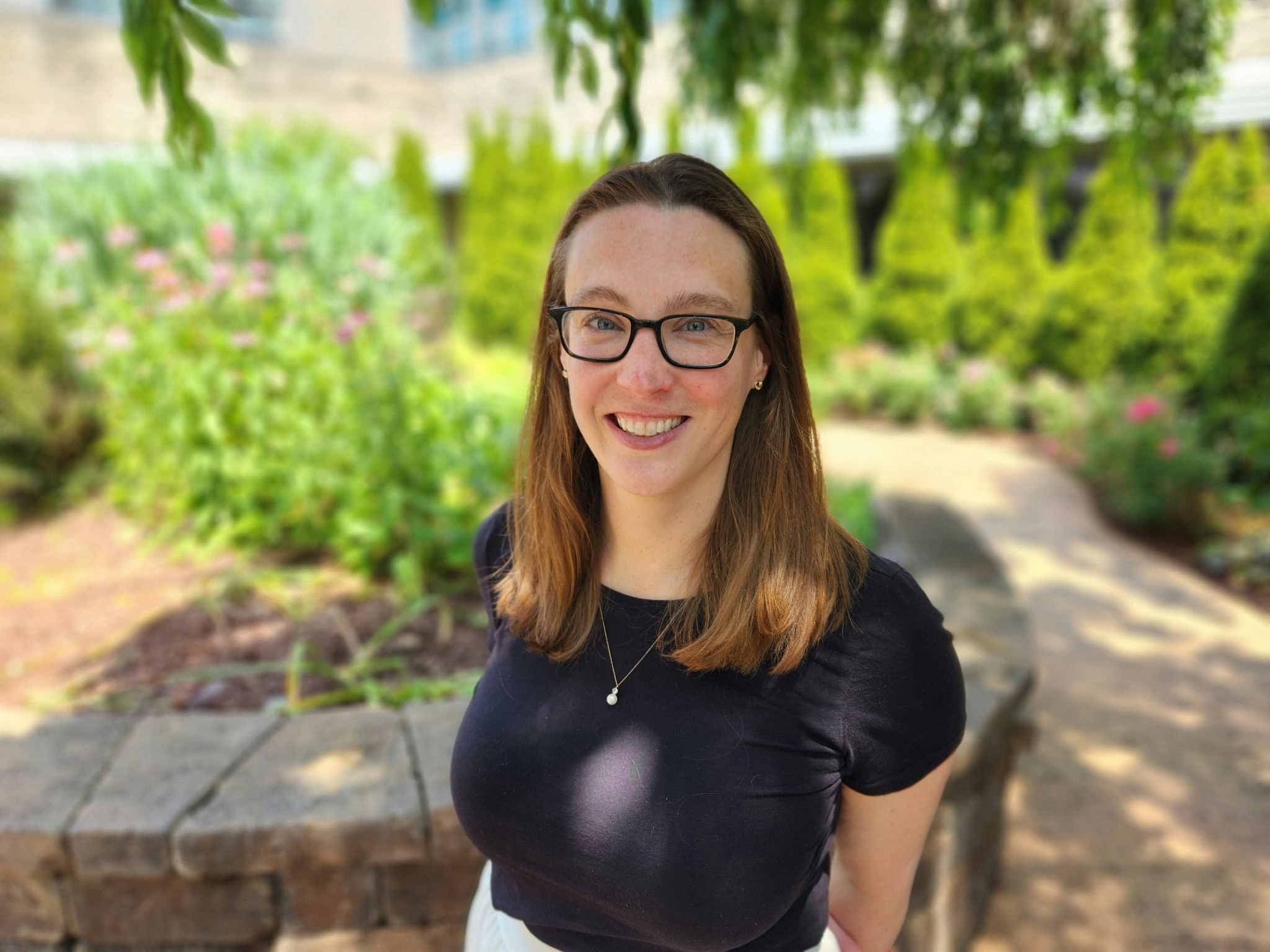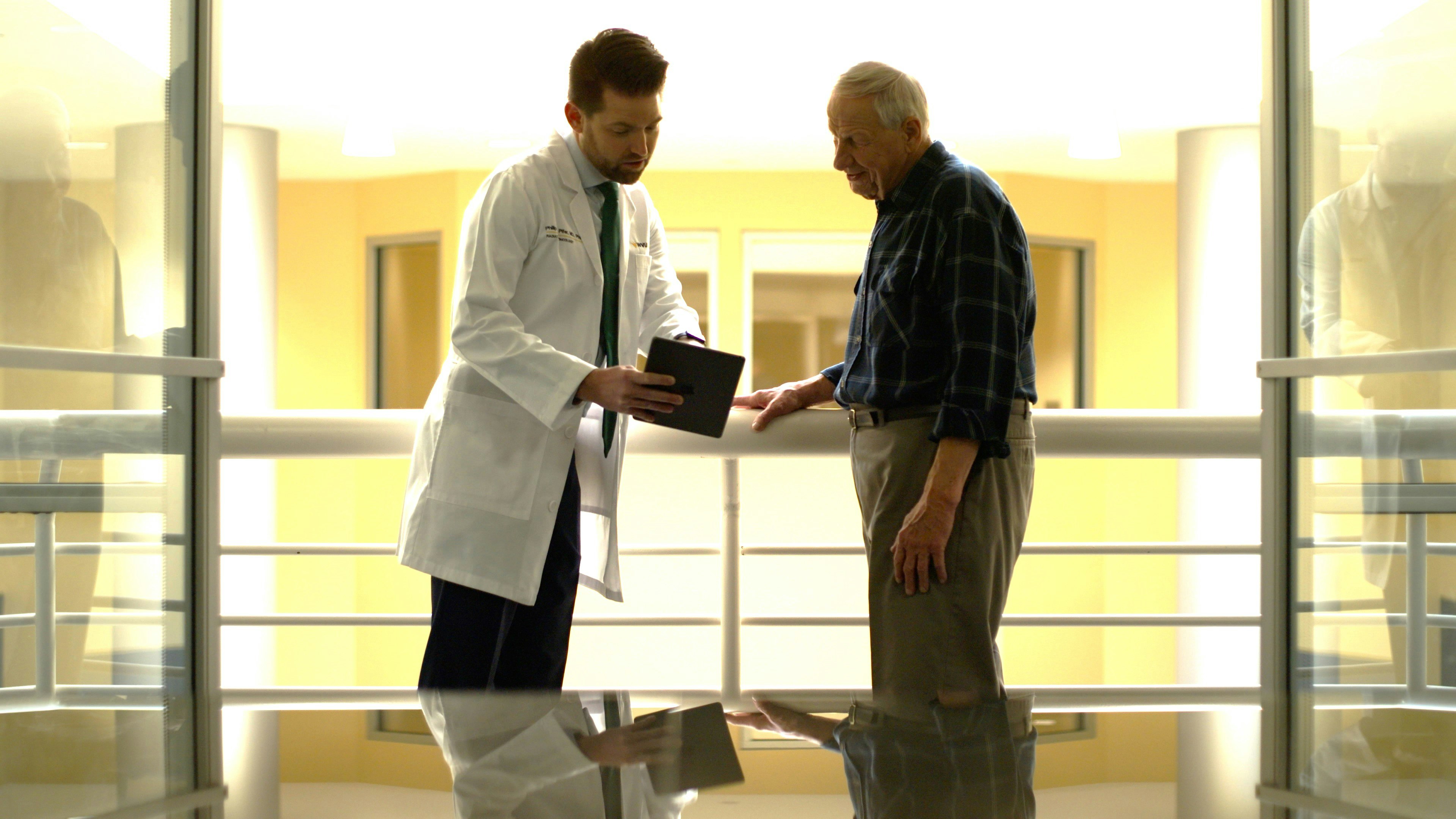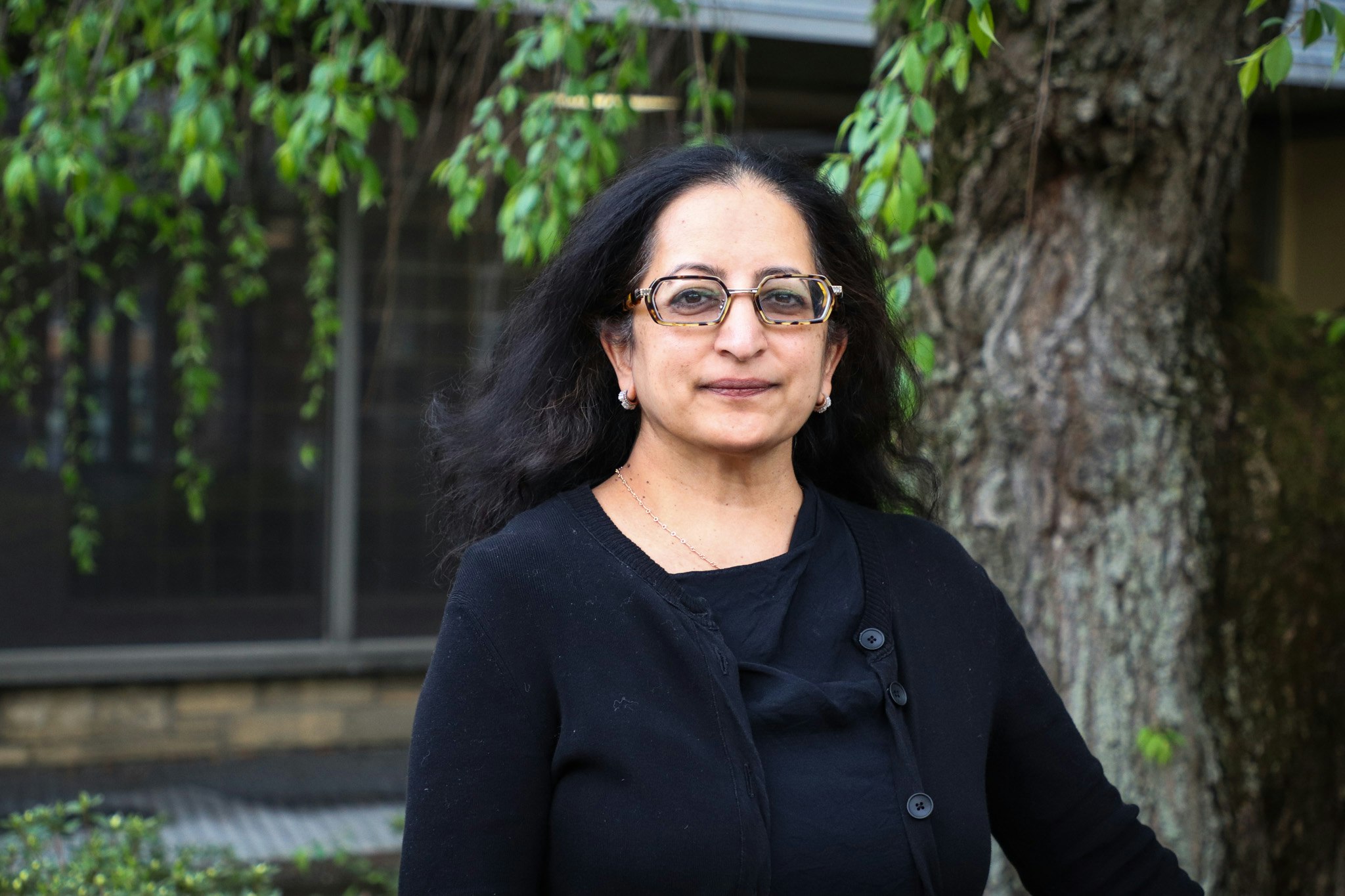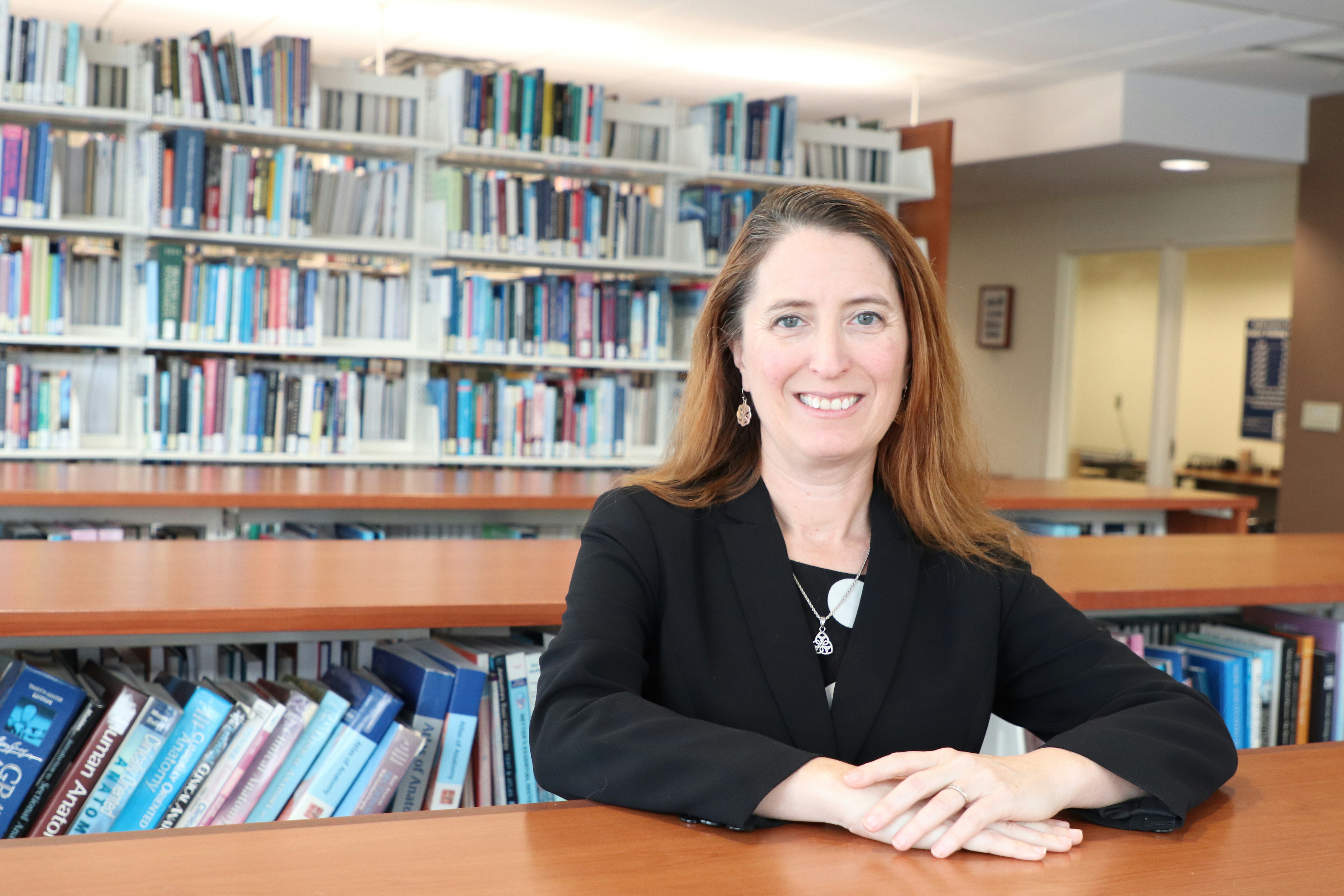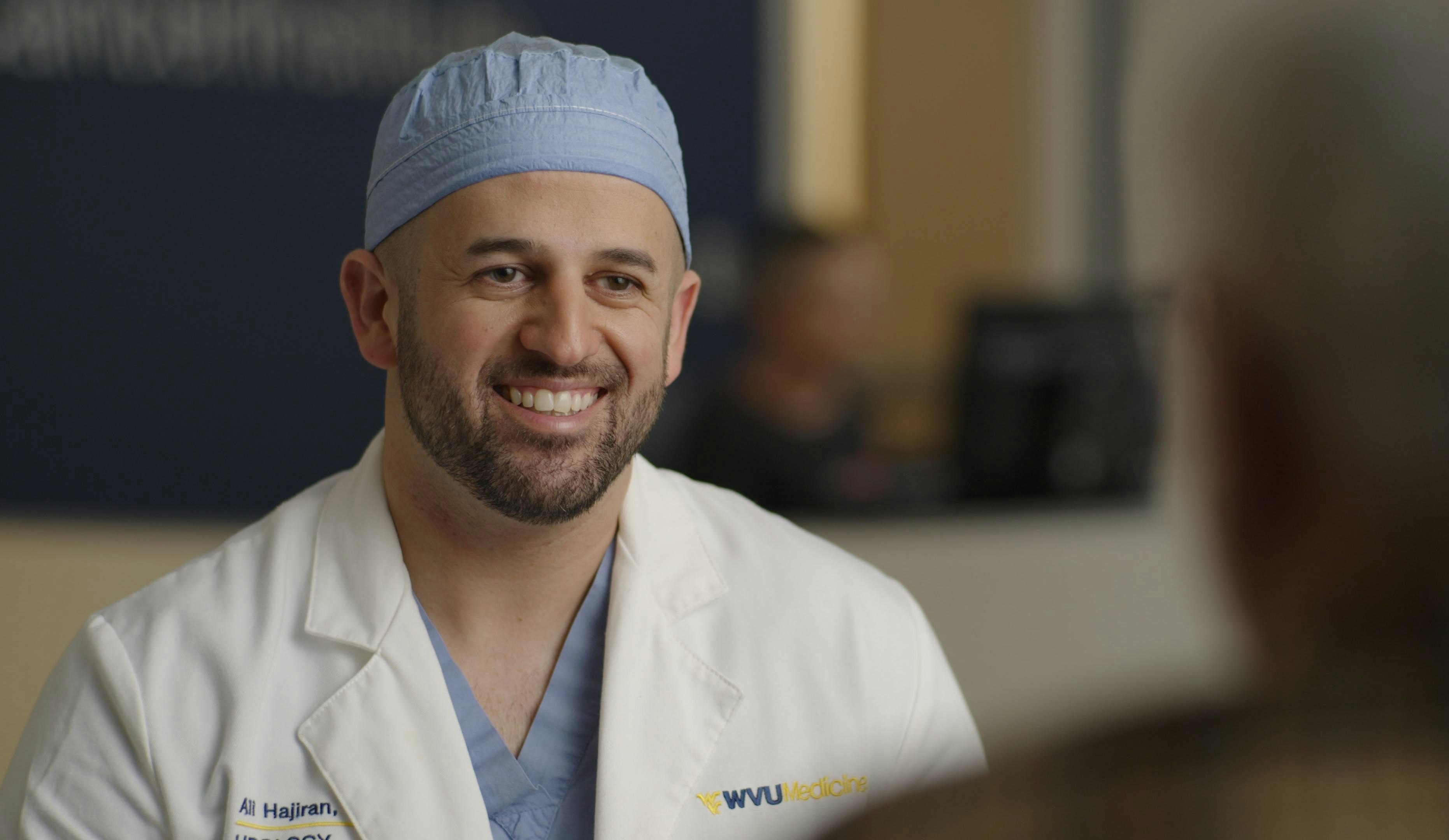Mary “Molly” Kledzik, MD, joined the WVU Cancer Institute in 2020. Through her advanced skills and efforts to expand access to care, she is improving patient health and outcomes across West Virginia and the region.
As a board-certified surgical oncologist, Dr. Kledzik treats many of the most difficult cancers with sophisticated surgical procedures. These surgeries often involve removing tumors or delivering chemotherapy directly to the site of a patient’s cancer.
As part of the surgical oncology team at WVU Cancer Institute, Dr. Kledzik cares for patients with a wide variety of cancers. Specifically, she treats appendiceal cancer, gastric cancer, sarcoma, and multiple types of skin cancer, including melanoma and Merkel cell carcinoma. Many of these cancers impact patients throughout West Virginia – particularly people who live in rural communities.
Initially, Dr. Kledzik planned to be a trauma surgeon. But, as a resident at what is now Atrium Health Wake Forest Baptist Hospital in North Carolina, she discovered caring for patients with cancer was her true passion. The surgeries were challenging, and she enjoyed being able to work with many patients over a longer time.
“When I started surgical oncology during my fourth year of residency, I noticed many people I’d cared for as a younger resident came back to the clinic,” she said. “That period in their life was rough. Knowing that we played a part in helping them get back to living life is incredible. And it’s something that I still really love.”
Making that kind of difference for patients has motivated Dr. Kledzik throughout her career. After earning her medical degree and finishing her residency, she completed a fellowship at the John Wayne Cancer Institute (now Saint John’s Cancer Institute) in California. But it was her deep family roots in Appalachia that brought her to West Virginia. She says she felt called to deliver the highest quality care to patients in areas with fewer healthcare resources.
That’s why joining the rapidly expanding surgical oncology group at WVU Cancer Institute felt like the right fit.
“The environment here is extremely supportive. It’s allowed me to pursue my surgical interests,” she said. “I can give personalized care to each patient. Everyone’s cancer is slightly different, and they all have different goals. I work with each person to tailor the treatment approach for their cancer. I help them choose how they want to live – how they want to balance their quality and quantity of life.”
Today, Dr. Kledzik treats patients at the Mary Babb Randolph Cancer Center. She uses a wide range of surgeries to fight each person’s cancer. She performs cytoreduction surgery (CRS) to remove tumors from the abdomen, followed by hyperthermic intraperitoneal chemotherapy (HIPEC), a procedure that flushes the patient’s abdomen with a heated chemotherapy solution. She also removes lymph nodes and conducts procedures to treat sarcoma and melanoma.
Alongside high-level surgical care, Dr. Kledzik conducts forward-thinking research. In partnership with the University of Kentucky, she investigates the role of the gut microbiome in cancer development, aggressiveness, and complications. The gut microbiome refers to the population of microbes that live in the intestines.
“The more we understand about the gut microbiome, the more we may be able to do simple things like diet changes to enhance the effects of chemotherapy. That could lead to better outcomes before and after surgery,” she said. “It’s potentially a way to ensure people get the most out of their treatment. That can make a big difference in West Virginia. Healthcare resources are slimmer, and people often must travel long distances for care.”
In addition, with funding from Pittsburgh Cure Sarcoma, she examines if blocking myeloperoxidase (a protein in the blood) can boost the effects of immunotherapy in patients with sarcoma.
Dr. Kledzik is also committed to helping people get easier access to the care they need. To achieve this goal, she helped create the WVU Cancer Institute Cancer Collaborative. This group brings together doctors from across the state who are involved in all types of cancer care. They meet to share research and discuss guidelines for care.
“We want people to get as much of their care as close to home as possible,” she said. “Traveling for care is financially, physically, and emotionally taxing. We want better options for patients.”
When Dr. Kledzik isn’t in the operating room, she and her husband enjoy hiking and traveling with their two children, ages 6 and 1, and their two dogs.
